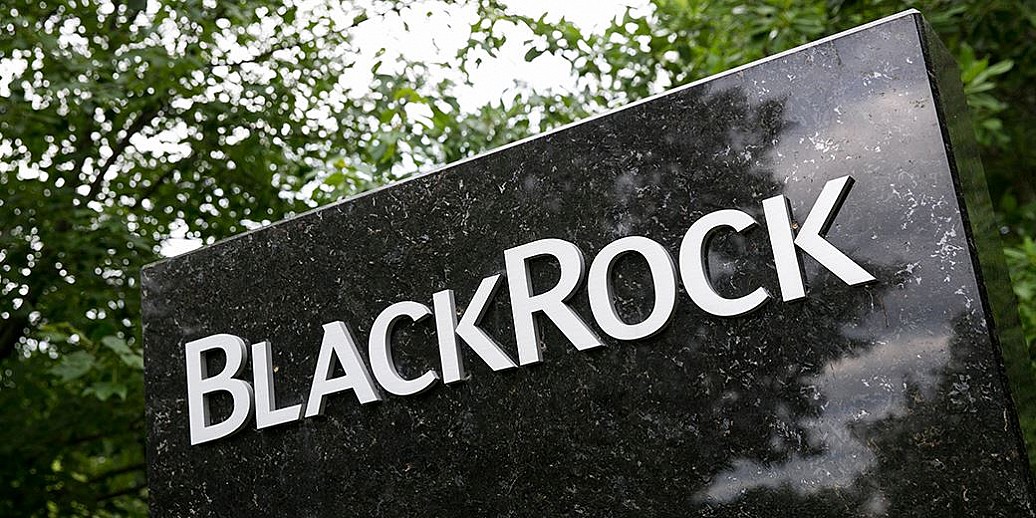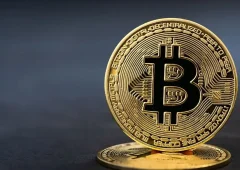BlackRock’s AUM Hits New High, Boosted by ETF Growth
15.07.2024 17:15 1 min. read Alexander Stefanov
Financial titan BlackRock reached a significant milestone by managing over $10.6 trillion in assets.
This growth of around $1.3 trillion in one year is largely driven by the soaring inflows into its ETFs.
The iShares Bitcoin Trust (IBIT), BlackRock’s largest spot Bitcoin ETF, holds more than $19.4 billion in Bitcoin, securing a 35.2% market share among US Bitcoin ETFs. The firm’s significant market influence means its trading activities can considerably impact Bitcoin’s price.
In the second quarter of 2024, investors poured $83 billion into BlackRock’s ETFs, bringing the year-to-date total to over $150 billion. This influx resulted in an 8% revenue increase and an 11% rise in operating income year-over-year.
Larry Fink, the company’s CEO, attributes part of this success to BlackRock’s strong corporate and governmental relationships, enhancing its capital partnership in private markets.
Bitcoin’s price recently rose to almost $63,000 due to positive BTC ETF inflows, optimistic views on a potential rate cut by the Fed this year and the assassination attempt on Donald Trump. US spot Bitcoin ETFs have seen net positive inflows for two consecutive weeks, totaling over $414 million, with BlackRock leading the charge on July 12, attracting over $120 million in investments.
-
1
Esports Giant Moves Into Bitcoin Mining
05.07.2025 13:00 2 min. read -
2
Bitcoin Dominance Nears Key Resistance — Is Altseason Coming Next?
13.07.2025 17:00 2 min. read -
3
Elon Musk Unveils His Own ‘America Party,’ Signals Pro-Bitcoin Political Shift
07.07.2025 11:40 2 min. read -
4
Bitcoin Blasts Past $121,000 as Institutions Fuel Rally—Will Altcoins Follow?
14.07.2025 8:15 2 min. read -
5
Bitcoin: What to Expect After Hitting a New All-time High
10.07.2025 14:00 2 min. read
Global Money Flow Rising: Bitcoin Price Mirrors Every Move
Bitcoin is once again mirroring global liquidity trends—and that could have major implications in the days ahead.
Two Upcoming Decisions Could Shake Crypto Markets This Week
The final days of July could bring critical developments that reshape investor sentiment and influence the next leg of the crypto market’s trend.
What is The Market Mood Right Now? A Look at Crypto Sentiment And Signals
The crypto market is showing signs of cautious optimism. While prices remain elevated, sentiment indicators and trading activity suggest investors are stepping back to reassess risks rather than diving in further.
What Price Bitcoin Could Reach If ETF Demand Grows, According to Citi
Citigroup analysts say the key to Bitcoin’s future isn’t mining cycles or halving math—it’s ETF inflows.
-
1
Esports Giant Moves Into Bitcoin Mining
05.07.2025 13:00 2 min. read -
2
Bitcoin Dominance Nears Key Resistance — Is Altseason Coming Next?
13.07.2025 17:00 2 min. read -
3
Elon Musk Unveils His Own ‘America Party,’ Signals Pro-Bitcoin Political Shift
07.07.2025 11:40 2 min. read -
4
Bitcoin Blasts Past $121,000 as Institutions Fuel Rally—Will Altcoins Follow?
14.07.2025 8:15 2 min. read -
5
Bitcoin: What to Expect After Hitting a New All-time High
10.07.2025 14:00 2 min. read


